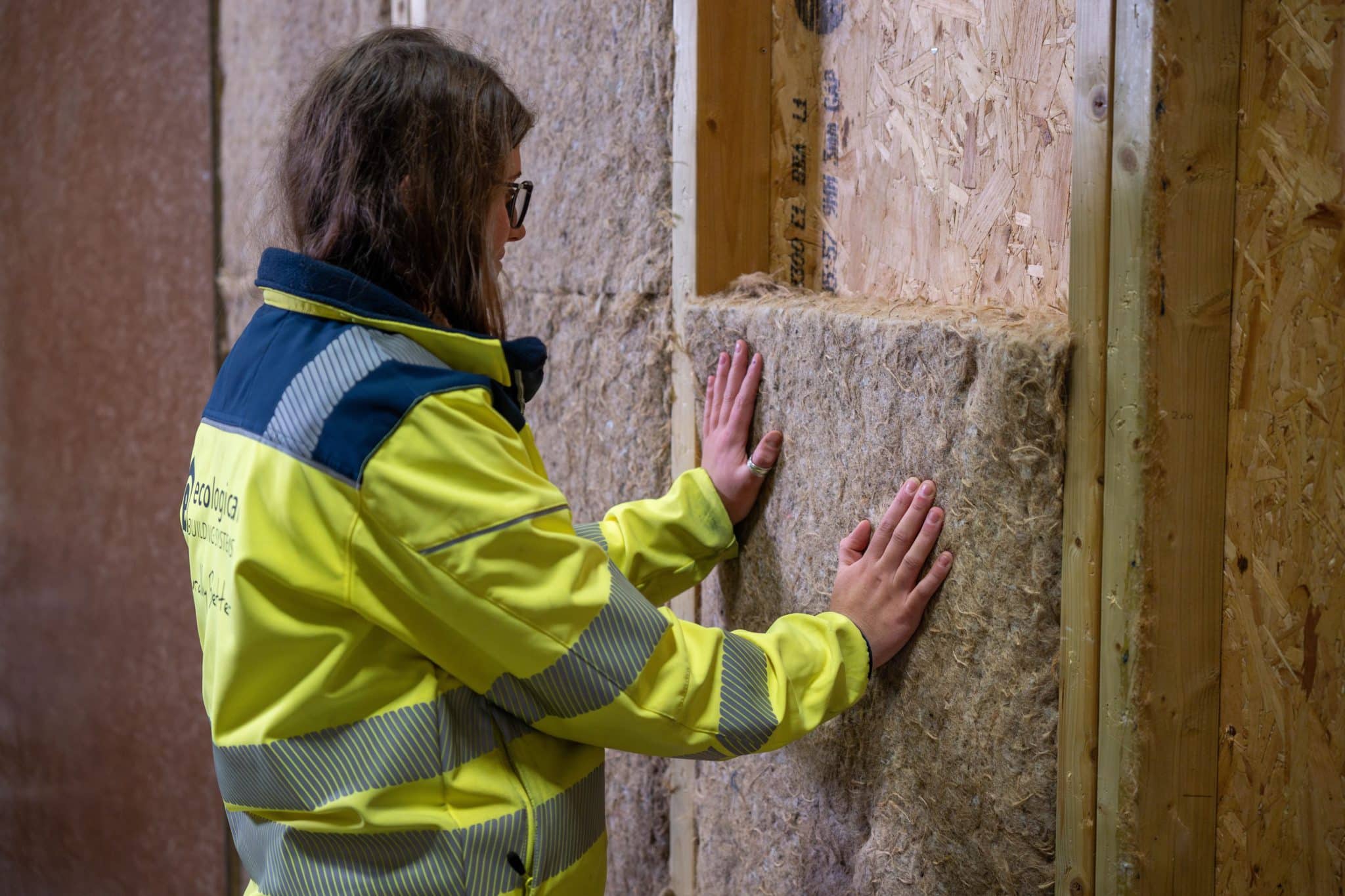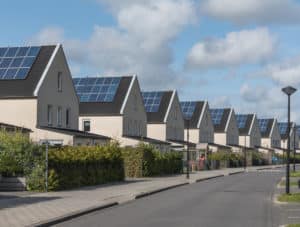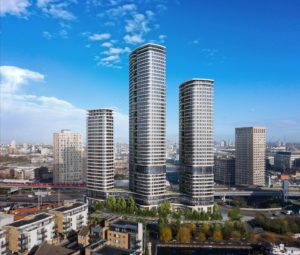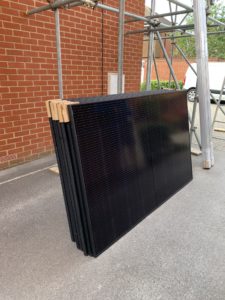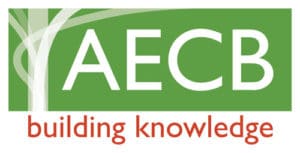Gramitherm Europe SA is a Belgium-based company that has developed a new building material made of an unexpected hero: grass. Yes, the same green blades that carpet our meadows are now being transformed into high-performance insulation, offering an energy-efficient alternative to traditional options. Gramithrm is exclusively supplied in the UK and Ireland by Ecological Building Systems, a Carlisle-based supplier of sustainable construction products.
Traditional insulation materials like fibreglass and foam have long dominated the market, but they come with environmental drawbacks, including high energy consumption during production and non-renewable resource usage. Enter grass-based insulation—a renewable, eco-friendly solution that could turn heads in the construction industry.
What makes grass a good insulator?
Grass is not only abundant and fast-growing but also boasts impressive insulating properties. Ecological Building Systems have created their own product – Gramitherm – from grass clippings, sourced from public parks and grass verges, combined with recycled jute fibres and a binder made from recycled polyester.
One of the standout advantages of grass insulation is its carbon-negative footprint. During its growth phase, grass absorbs CO₂ from the atmosphere. For instance, 1kg of Gramitherm batt insulation sequesters approximately 1.405 kg of biogenic carbon effectively reducing greenhouse gases.
Moreover, the energy required to produce grass insulation is significantly lower than that for conventional materials. The net energy requirement is between 8-12 MJ per kg, which is up to ten times less than that of polystyrene-based insulation.
Beyond its green credentials, grass insulation also offers robust performance:
- Thermal efficiency: With a thermal conductivity ranging from 0.034 to 0.038 W/m·K, grass insulation provides excellent thermal resistance, keeping interiors comfortable year-round.
- Moisture regulation: Grass insulation is open to vapor diffusion (μ=1-2), allowing it to absorb and release moisture effectively. This property helps maintain a balanced indoor humidity level, reducing the risk of condensation and mold growth.
- Acoustic properties: With high sound absorption over a wide frequency range, grass insulation enhances acoustic comfort within buildings, making it suitable for environments where noise reduction is essential.
What do the experts think?
Andrew Sadler, Director at Buildpass, said:
“I’m always so interested to see new sustainable materials hitting the market, and grass insulation is no exception. I’m not surprised that it’s gaining such traction; it offers a brilliant blend of environmental benefits and high performance, making it a compelling choice for eco-conscious builders and homeowners alike.
Incorporating grass-based insulation into building projects not only supports environmental stewardship but also provides more opportunities for innovative approaches to sustainable living. It’s a testament to how reimagining natural resources can lead to solutions that benefit both people and the planet.”
Keen to better understand which sustainable insulation could be best for your next project? Get in touch with Buildpass – we’d love to support you!



